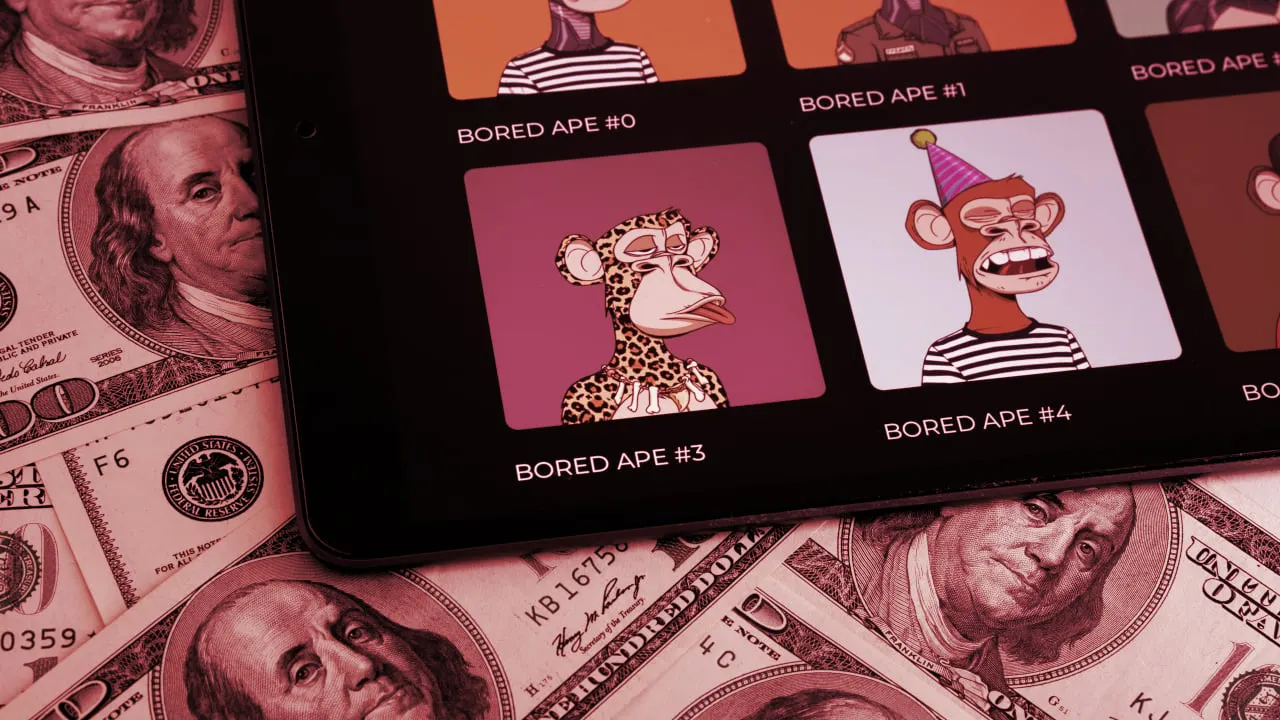A Dune Analytics user has tallied the number of NFTs from top collections that have been marked as stolen or suspicious and thus frozen on OpenSea, and the numbers are staggering.
According to a new dashboard on the crypto data aggregator, 130 Bored Ape Yacht Club NFTs and 268 Mutant Ape Yacht Club NFTs have been marked as “reported for suspicious activity” on OpenSea, meaning that previous owners of those NFTs have contacted the marketplace and identified them as stolen. The value of those NFTs adds up to over $18.5 million.
That figure doesn’t include the 153 Azuki NFTs that have been frozen, the 202 stolen CloneX, or the 70 Moonbirds. If sold at current floor prices, that would add up to another $6.9 million of “stolen” NFTs, meaning that among half of OpenSea’s top 10 collections of all time, over $25.4 million of NFTs have been marked stolen.
NFTs—unique blockchain tokens that signify ownership over other assets—can only be transferred or sold to a new owner if the holder authorizes a transaction. So while many NFTs are considered “stolen” according to their former owners, in most cases these owners authorized a transaction without realizing it. Often, this is the result of phishing scams via email, Twitter, or Discord.
OpenSea’s policy is to disable allegedly stolen NFTs from being traded on its site. But some NFT traders, such as popular Bored Ape holder “Franklin,” have pointed out that OpenSea’s reach only extends so far, and it may be possible to trade these “locked” NFTs on other marketplaces, like LooksRare.
Others, like Moonbirds holder Jameson and many others on Twitter, have argued that OpenSea’s policy for “stolen items” is flawed and too centralized, given the marketplace’s sweeping power to freeze what are ultimately supposed to be decentralized blockchain assets. OpenSea did not immediately respond to Decrypt’s request for comment about the issue.
More broadly, this isn’t the first time OpenSea has been criticized for being “centralized.” Twilio software engineer Blake Petersen argued that the problem could also be applied to all of Web3—the idea that the next iteration of the internet will leverage blockchain technology to verify data ownership.
“This is 'Web3'—begging a centralized API to let you get indexed so you can present an authenticated PFP on a stupid social media app,” Petersen wrote on Twitter of his issue making his NFT on OpenSea hexagonal on Twitter.
Daily Debrief Newsletter
Start every day with the top news stories right now, plus original features, a podcast, videos and more.

